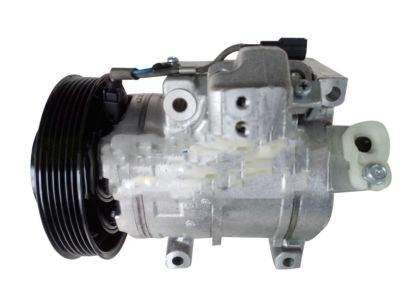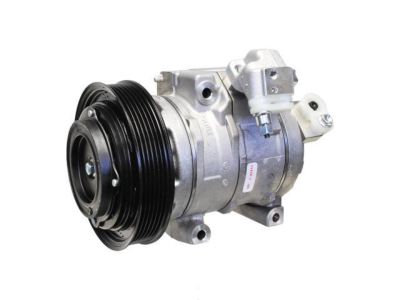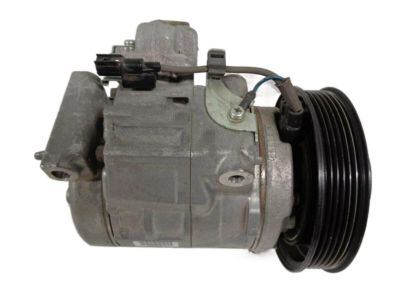×
- Live Chat
- 1-888-984-2011

My Garage
My Account
My Cart
Genuine Honda Crosstour A/C Compressor
Air Conditioning CompressorEnter your vehicle info to find more parts and verify fitment
- Select Vehicle by VIN
- Select Vehicle by Model
Select by VIN
orEnter your VIN for the most accurate results.Enter your VIN for the most accurate results.
Select by Model
-- Select Model --
-- Select Year --
-- Select Body & Trim --
-- Select Emission & Transmission --
3 A/C Compressors found
Honda Crosstour Compr,Comp
Part Number: 38810-5G0-A01- Other Name: Compressor
$661.43 MSRP: $954.46You Save: $293.03 (31%)
Honda Crosstour A/C Compressor Parts Questions & Answers
- Q: How to replace an Air Conditioning Compressor on Honda Crosstour?A: When replacing entire components, additional refrigerant oil should be added equal to the amount that is removed with the component being replaced. Be sure to read the can before adding any oil to the system, to make sure it is compatible with the R-134a system. Note: The receiver-drier should be replaced whenever the compressor is replaced. Removal: Have the air conditioning system refrigerant discharged and recovered by an air conditioning technician. Disconnect the cable from the negative battery terminal. Set the parking brake, block the rear wheels and raise the front of the vehicle, supporting it securely on jackstands. Remove the drivebelt. On 2007 and earlier four-cylinder models and all V6 models, remove the alternator. On V6 models, remove the ignition coil cover. On V6 models, remove the condenser fan. Remove the splash shield from under the engine compartment. Disconnect the compressor clutch electrical connector. Disconnect the refrigerant lines from the compressor. Plug the open fittings immediately to prevent entry of dirt and moisture. Remove the compressor mounting bolts. Carefully guide the compressor out of the engine compartment. Note: On V6 models, be careful not to damage the radiator fins during removal.Installation: The clutch may have to be transferred from the old compressor to the new unit. Adjust the amount of refrigerant oil in the new compressor using the following calculations: Drain the refrigerant oil from the old compressor through the suction fitting and measure it in ounces. Subtract this number from 5-1/3 ounces. The difference between these two figures is equal to the amount you should drain from the new compressor. Even if no oil came out of the old compressor, don't drain more than 1-213 ounces from the new one. Installation is the reverse of removal, using new 0-rings where the line fittings attach to the compressor. Note: Only use 0- rings that are designed specifically for AJC system applications. Have the system evacuated, recharged and leak tested by an air conditioning technician. Reconnect the battery.















